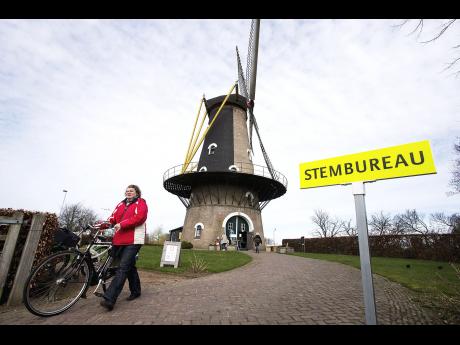Walter Molano | Globalisation, capitalism under siege
Technological change has always had important implications for societal and political organisation.
A novel form of economic arrangement emerged at the start of the 18th century, with the onset of the Industrial Revolution. Prior to that, the two standard factors of production were land and labour.
Wealth was a direct function of the number of workers and the amount of land. That is why huge plantation owners in the Caribbean, Americas, Africa and East Asia were among the wealthiest people on the planet. Wars were fought for territory, as well as subjects.
However, the onset of the Industrial Revolution introduced a new factor of production, capital, which was much more dynamic than the other two.
While the accumulation of land and labour was linear, capital was geometric since it could be compounded by rates of return. The Industrial Revolution turbocharged economies and drastically altered the societal landscape.
At first, it led to a mad scramble for natural resources, markets and labour, which fostered the rise of imperialism and the expansion of slavery. However, as the industrial process became more efficient, economic agents realised it was better to have flexible labour, markets and sources of natural resources.
Slowly, the chains of servitude were severed, empires were set free and the emphasis moved to free trade. By allowing the three factors of production to move freely, globalisation allowed for greater accumulation of wealth.
For the past century, waves of immigration moved people north and south. The massive movement of capital, in the form of foreign direct investment, portfolio flows and remittances, changed the global landscape.
Meanwhile, quantum leaps in transportation and communications technologies allowed for huge advances in the trade of manufactured goods, commodities and services. The planet was reduced to a single marketplace, creating the economies of scale needed for a massive increase in prosperity.
Globalisation frustrations
At the same time, the rapid speed of the globalisation process fuelled frustrations that accumulated along the way, many of which are now popping to the surface.
The exasperation with globalisation is not a North American or European phenomenon. It is a problem that transcends the planet. At the end of January, Argentine President Mauricio Macri signed a decree introducing draconian immigration rules, including the deportation of immigrants without criminal records.
In Brazil, right-wing presidential contender Jair Bolsonaro is railing against immigrant "scum". In the Middle East, some of the discontent that fuels radical movements is the erosion of traditional values by the intrusion of media, products and technology. Sociologists argue that globalisation is a frontal attack on cultural identity, undermining the traditional institutions that regulate societal norms. Harvard's Samuel Huntington described it as a clash of civilisations, but it is more like a global identity crisis. Either way, globalisation is under attack.
Foreign direct investment peaked in 2009, and been trending down ever since. Several major Chinese acquisitions of western companies have been thwarted by regulators. A similar trend occurred with portfolio capital flows.
The clamp down on offshore holdings by programmes, such as FATCA and the various amnesty programmes, have constrained international portfolio flows. Remittances have continued to climb, but they may soon retreat. Recent threats to remittances, greater regulatory supervision as well as immigration restrictions, could lead to a pull-back.
Trade has also been under pressure. The World Bank recently reported that global trade expanded only 1.9 per cent y/y in 2016. This was the slowest pace of growth since the financial crisis. The multilateral lending agency also warned that increased nationalism could lead to a decline in the international exchange of goods and services. Advances in technologies, such as fracking, robotics and artificial intelligence, may allow countries to become more autarkic.
This is not to say that globalisation is dead, but it is definitely taking a pause as society assimilates the great strides that were made. Political parties need to adapt.
Clearly, there is a great deal of frustration with traditional political parties, which has led to the rise of nationalist actors such as Donald Trump, Vladimir Putin, Recep Tayyip Erdogan, Rodrigo Duterte, Marine Le Pen and Geert Wilders.
Even capitalism is under siege. Traditional corporate governance is under attack, as in the case of Snap Inc, which, while readying to go public, offered shareholders no voting rights or prospects for dividends.
A period of change is upon us, as society grapples with the challenges created by globalisation and another technological revolution.
- Dr Walter T. Molano is a managing partner and the head of research at BCP Securities LLC.

